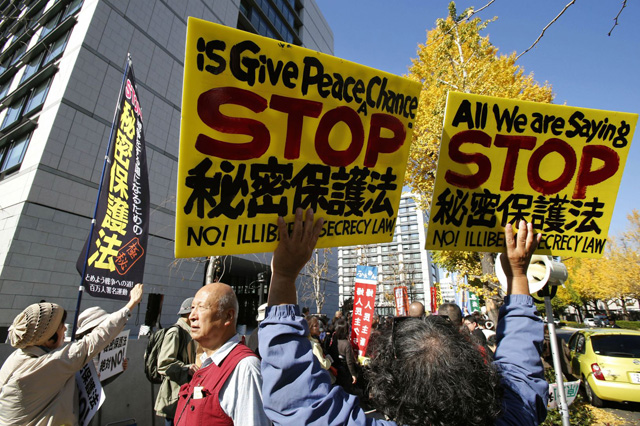Japanese parliament has enacted a controversial states secrets law amid bitter opposition from the public and journalists.
The state secrecy bill was approved by the upper chamber Friday after days of raucous debate among legislators and public discord over the weight of the law once enforced.
Under the law, public servants or others with access to state secrets could be jailed for up to 10 years if found leaking them. Journalists and other individuals convicted of encouraging such leaks could get up to five years if they use “grossly inappropriate” means to solicit the information.
Prime Minister Shinzo Abe has said the law is needed to pave the way for the new National Securities Council, a move that could persuade foreign countries, particularly its US ally, to share intelligence.
Speaking at a parliamentary debate on the bill, Abe cited the recent creation of China’s new “air defense identification zone” in the East China Sea that covers Japanese-administered islands also claimed by Beijing.
“In responding to China’s ADIZ, we need to debate whether Japan’s defence capabilities are adequate, and there are many secrets involved,” the hawkish premier said. “If politicians leak them, they will be punished.”
Government agencies are also given new powers to determine secrets that could be kept for up to 60 years or longer.
“Specially designated secrets” can fall under four categories—defense, diplomacy, counter-terrorism and counter-espionage. Secrets remain classified for five years but the period can be extended at a ministry’s discretion, with cabinet approval required for extensions beyond 30 years.
Critics took aim at the broad powers given to government ministries to decide what should be kept secret while others said the law was reminiscent of Japan’s authoritarian past.
“This law seriously harms the public’s right to know,” said Banri Kaeda, head of the Democratic Party of Japan, the largest opposition party.
By Maesie Bertumen
Image: todayonline.com









